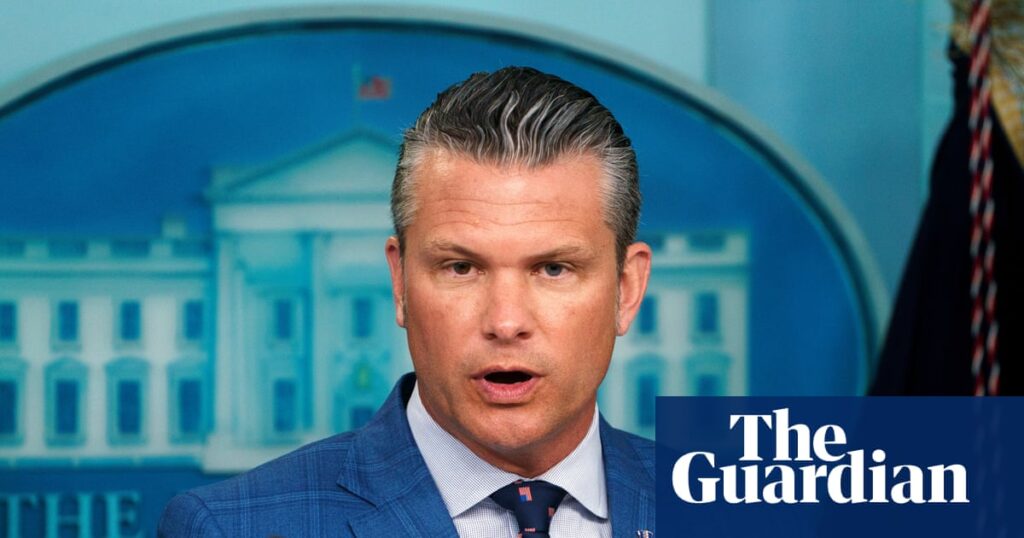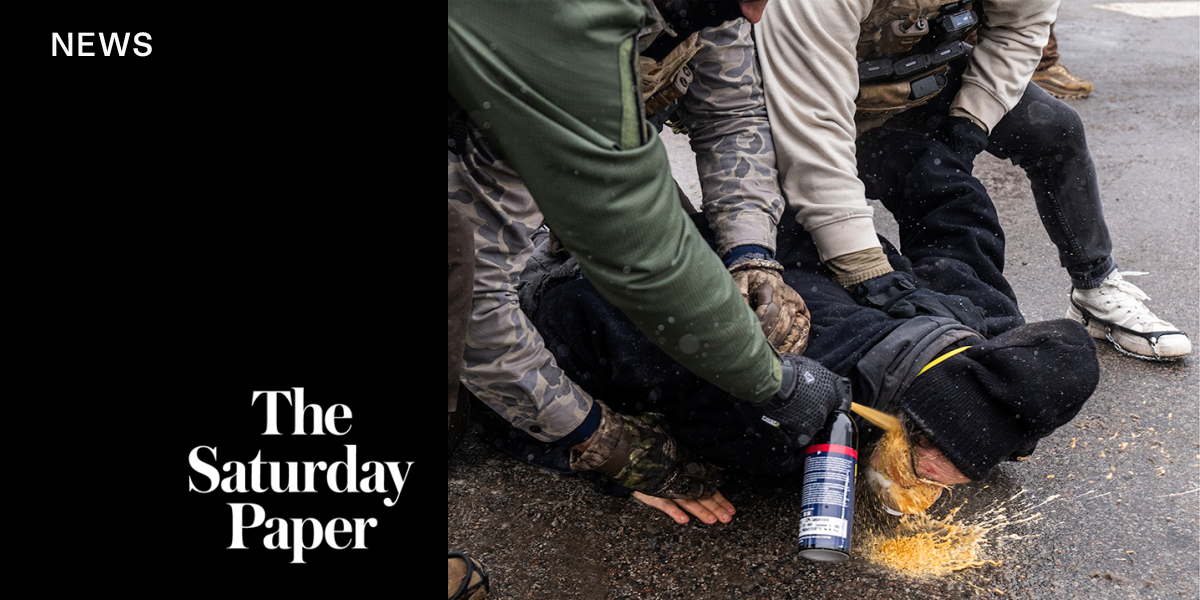
While Secretary of Defense Pete Hegseth’s connections to an extremist church and his crusader tattoos raised eyebrows during his confirmation hearings, the former Fox & Friends host is now openly infusing his ultra-conservative brand of Christianity into the Pentagon. This has led to a growing divide within the military ranks, with veterans expressing concerns over the impact on the future of the U.S. military.
Veterans have reported that Hegseth’s religiosity is evident in new recruitment ads and official U.S. Department of Defense social media activities. A recent Pentagon video posted on X, featuring the message “We Are One Nation Under God,” depicts paratroopers and soldiers in tactical gear in a desert setting reminiscent of the Middle East. The video includes a biblical quote from the Book of Psalms, “I pursued my enemies and overtook them; I did not turn back till they were destroyed,” further fueling the controversy.
Religious Messaging and Military Recruitment
Days before the controversial ad was posted, Hegseth shared a CNN segment about Pastor Doug Wilson on his personal account, with the quote “All of Christ for All of Life,” a slogan advocating for Christianity in all aspects of society, including government. Critics argue that this post reflects Hegseth’s own problematic track record with feminism, undermining his promises to advocate for women in uniform.
The Pentagon has not responded to inquiries about its biblically inspired recruitment ads or its use of Christianity on social media. However, Chief Spokesman Sean Parnell stated that Hegseth is a proud member of a church affiliated with the Congregation of Reformed Evangelical Churches, founded by Pastor Doug Wilson. “The Secretary very much appreciates many of Mr. Wilson’s writings and teachings,” Parnell said in a statement.
Divisions Within the Ranks
Mike Pruitt, a Navy veteran and Democratic congressional candidate in Virginia, is among those voicing concerns about the divisive impact of Hegseth’s actions. “I have certainly heard from friends of mine who are still in service expressing frustration about the way that their role is being cast as political,” Pruitt said. He emphasized that active-duty troops feel their concerns are invisible to the media narrative.
Kristofer Goldsmith, an Iraq War veteran and CEO of the non-profit watchdog Task Force Butler, which investigates extremism in the ranks, echoed Pruitt’s sentiments. “Every time Hegseth does one of these things, I’m getting messages from active duty troops, reaching out to me more and more,” Goldsmith said. “We’ve got active-duty troops who recognize that the military they’re serving in has become a threat to democracy.”
“We’re gonna see a lot of Christian nationalists join the military. They’re not gonna perform very well, and our national security will suffer for a generation for it.” – Kristofer Goldsmith
Historical Context and Political Implications
Goldsmith noted that outside of the “anti-war protesters during the Bush era,” he has not seen this level of resistance to Pentagon policies among the military and veteran community in the last two decades. Another veteran described Hegseth’s actions as “cringe” among soldiers still in uniform.
Despite the controversy, the Pentagon, which faced a recruitment shortfall and new lows in enlistments before the second Trump administration, claims that its campaigns under Hegseth have led to a surge in numbers. Goldsmith, however, warns that this increase may come with long-term consequences. “They won’t be able to develop the next generation of troops that follow, and that is going to have a disastrous effect on the United States and on the global stage,” he said.
Pruitt, who identifies as both an American and a practicing Christian, criticized Hegseth’s view of faith as rooted in toxic machismo. “The man has all his ‘deus vult’ tattoos and his hospitaller crosses because he wants to imagine himself as the picture book hero, as the knight,” Pruitt said. “That is not what our military is, that is not what our country is, and that is not what the Christian mission is.”
Addressing Extremism and Future Challenges
In response to the January 6 attacks on Capitol Hill, which involved hundreds of active-duty or former U.S. servicemen, former President Joe Biden prioritized tackling extremism among government workers, particularly in the military. His Secretary of Defense, Lloyd Austin, issued a historic “stand-down order” in February 2021, prompting servicemen to reflect on extremism and introducing expanded guidelines on extremist activities while in uniform.
However, as soon as Hegseth assumed leadership at the Pentagon, he initiated the removal of thousands of transgender troops and fired senior female service members and high-ranking officers of color, while denouncing “woke” policies. “Transgender troops being forced out in the middle of their service and denied their retirement benefits is not something that makes our country stronger,” Pruitt argued. “The mission of the Secretary of Defense is to actually make our country stronger and more safe.”
The ongoing debate over Hegseth’s influence at the Pentagon highlights the complex interplay between religion, politics, and military policy in the United States. As the situation continues to evolve, the implications for military cohesion and national security remain uncertain.





